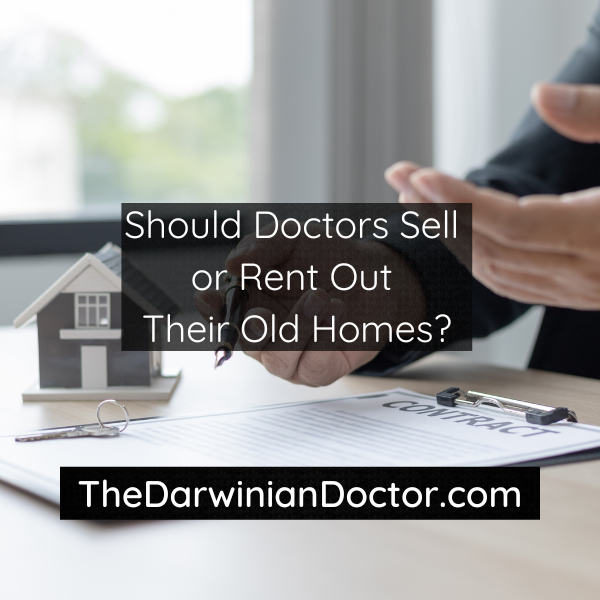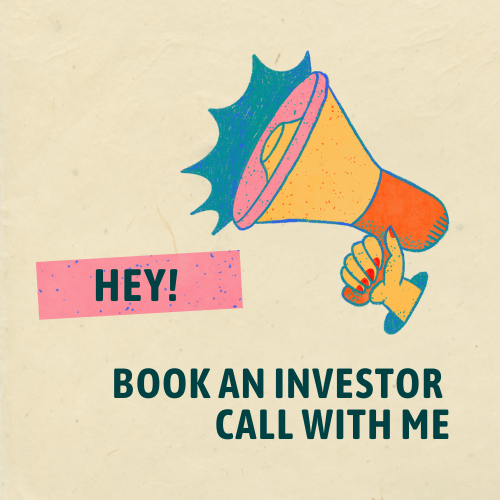When you’re switching cities for work, sometimes you have to decide if you should sell or rent out your home. Here’s a few questions to ask yourself to help you make the decision.


This post may contain affiliate links.
Introduction
Despite the White Coat Investor’s advice against the practice, I know a lot of doctors who bought a home during residency. Many of my colleagues who stayed in Pittsburgh after medical school saw that the local real estate was relatively cheap. They calculated that they’d save a lot of money by just buying a starter home instead of renting. Despite the risk of their investment losing value, they chose to take the risk.
In my case, I had some generous in-laws who gave my wife and I a downpayment as a wedding gift. So despite completing my training in Los Angeles, where home values are very high, my wife and I were able to buy a home at the beginning of my residency. This just happened to coincide with the bottom of the real estate market in 2010. Due to this happy coincidence, this home was able to serve as the bank for a lot of our later real estate investments.
Residency always end
The problem with buying a home in residency is that residency inevitably ends. This is a blessing of course, since residency for many doctors can be some of the hardest and most challenging years of our lives.
While most residents stay in the same state after residency, the AAMC estimates that about 45% do move out-of-state. If you are saddled with a home when you’re making this transition, this complicates the matter. On top of all the other life decisions you’ll be facing, you’ll have to make an extra decision: should you sell or rent out your old home?
While the situation is perhaps more complicated these days due to the Federal Reserve’s campaign against inflation, there are some standard questions you can ask yourself to come to a decision.
Questions to held you decide
I believe we can break down the basic questions into three general buckets:
- Basic Financial Questions
- Investor Questions
- Crystal Ball Questions
Basic Financial Questions
Just like a lot of things in life, some of the most basic questions are financial. Here is a short list of money-related questions to consider:
- Can you afford housing in your new city without selling your old home?
- How much is your old home worth?
- How much equity do you have in it?
- What kind of taxes would you face if you sell the property?
Basically, you want to get a sense of the nuts and bolts of your finances, with or without your old home. This will include thinking about your expected costs in your new city, both in the short term and long term.
A big part of this calculation will obviously depend on what you expect your income to be in your new city. For most doctors transitioning from residency to attending status, you’ll be experiencing a 5-10x increase in your income. This will hopefully give you a lot of wiggle-room as you perform these calculations.
After you’ve gotten a handle on the basics of your expected finances, you can go through the expected financial impact of selling your old home or keeping it. This requires some assumptions about the value of your old home. To determine that, you can read this article: The 3 best ways to estimate your home value (aka: How I “lost” $1 million overnight)
There are many other financial questions you can ask yourself, but these first questions will give you a good start. After you consider these basic financial questions, let’s move onto the next set of questions.
Investor Questions
- Are you ready to become a real estate investor? (I hope so!)
- If you rent the home, will the income cover your costs?
- Do you expect significant maintenance or management costs?
If you decide to keep your old home after your move to a new city, congratulations, you’re about to become an “accidental landlord”. Because if you retain a home in a city after moving, it makes sense to rent it out to cover its maintenance and financing costs.
If you find yourself at this stage, you really need to consider the investor questions above. I firmly believe that real estate investing is the fastest path to financial freedom, but I realize that it’s not for everyone. If you decide to take the plunge and become a real estate investor, there is some leg work that you will have ahead of you.
Even if you use plan to use property management to manage your hold home, you can expect to expend some time and energy to get your first real estate unit rented with a stable, paying tenant.
The advantage here is that we’re talking about a home that you know very well. Since it’s your old home, you will know if there are looming maintenance issues like a leaky roof or bad plumbing. Even if you utilize a property manager, you’ll be better able to advise your PM about repairs.
If you’ve come this far and think it makes sense to retain your home, congratulations, you’re about to become a real estate investor! I recommend you take a look at this article to understand how to calculate your potential return from a rental property: 5 simple steps to calculate your Real Return on rental property
Crystal Ball Questions
- Do you think you’ll be coming back to this city?
- Do you expect real estate in this city to appreciate more than other cities?
Finally, it’s always worth it to consider what I like to call “Crystal Ball Questions”. These are questions that are impossible to know for sure, but are worth considering.
If you think there’s a good chance you’ll be returning to the city of your old home anytime, this might be a good reason to hold onto the home. Also, if you know your old home has a better than normal chance of appreciation, this might also increase your reasons to keep it.
Obviously, your answer to these questions will just be guesses, but that doesn’t mean that they aren’t valid.
When it comes to our old primary home in Los Angeles, we considered all of these questions when making the move to Memphis last year. It’s been about a year since the housing market tanked and we rented our home instead of selling it. So now we’re asking ourselves these questions once more.
Read more: Is owning a home a good investment? 10 years of home ownership in LA, analyzed
Conclusion
If you’re deciding whether to rent out or sell your old home as you make the transition to another city, I hope you found this article useful. With all major decisions in life, there are a few levels of questions to ask yourself, ranging from financial to sentimental.
If you consider these questions in a systematic manner, though, you’ll be much better equipped to come to a reasonable decision.
Good luck!
— The Darwinian Doctor
Have you had to make this decision as you transition from residency to attending life? Let me know in the comments below! Please subscribe to the newsletter so you don’t miss a post.
Want to support the blog?
- Join our investor club at Cereus Real Estate
- Visit my Recommendations page
- Check out my wife’s food blog: Eat Dessert First
- Stay at our luxury short term rentals
- Check out my TikTok channel
- Follow me on Instagram
- Follow me on YouTube
- Contact me with questions



2 comments
I have never read a column that describes the decisions I made until reading this one! In residency, much to my colleague’s dismay, I spent all 3+ years of my residency living in the subsidised residential housing across the street from Hartford Hospital. I was gently shamed for not moving when I had more income, as all the rest of the residents used this option for 1 or so years until they could get a better rental or purchase a home.
I was returning to California, where I would need a home to live in and a tax break, so by living below my means during residency in Connecticut, I aggressively saved a 20% down-payment to buy my first home. It was a beautiful Tudor in the Oakland Hills that had expansion potential. I purchased it within 8 months moving to Oakland. 10-years later, I moved to Monterey, CA. Because I had had a freak house-fire in Oakland, the house was still being renovating when it was time for me to move, so I couldn’t sell it. I moved with 2 dogs and 2 cats, an knew even I wouldn’t have rented to me! So pulled out just enough Equity from my Oakland house (that didn’t require an appraisal) and used that $ for a down-payment before starting my new job in Monterey. As fate would have it, after moving, my medical group merged with another the very first year that triggered a ‘buy-out’ of my preferred shares in my old medical group that paid off the Equity loan used for the 20% down payment, and I was able to keep both the Oakland and Monterey homes, thus I became an ‘Accidental Landlord’.
After 27 years of ownership of just holding my first home in Oakland, letting it pay itself down, I finally sold Oakland in 2020, and with a 1031 Exchange, purchased an Ocean View house in Carmel, CA (renovating this home became my Pandemic project). I would not have had the $ to buy and renovate it if it was not a 1031 that basically paid for the house. As the Carmel home needed to stay a ‘rental’ for the 1031 Exchange, it is now a beautiful STR on VRBO that brought in 6-figures my first year renting in 2021.
I did not ‘know’ any of these strategies when I was doing them, but have ended up employing many of them to be successful in Real Estate investing today.
Thanks for your Blog and keep up the great education for us doctors. You never know when these gems of advice may change your life!
Thanks so much for your comment, I appreciate you! It sounds like you made some choices that rewarded you handsomely!